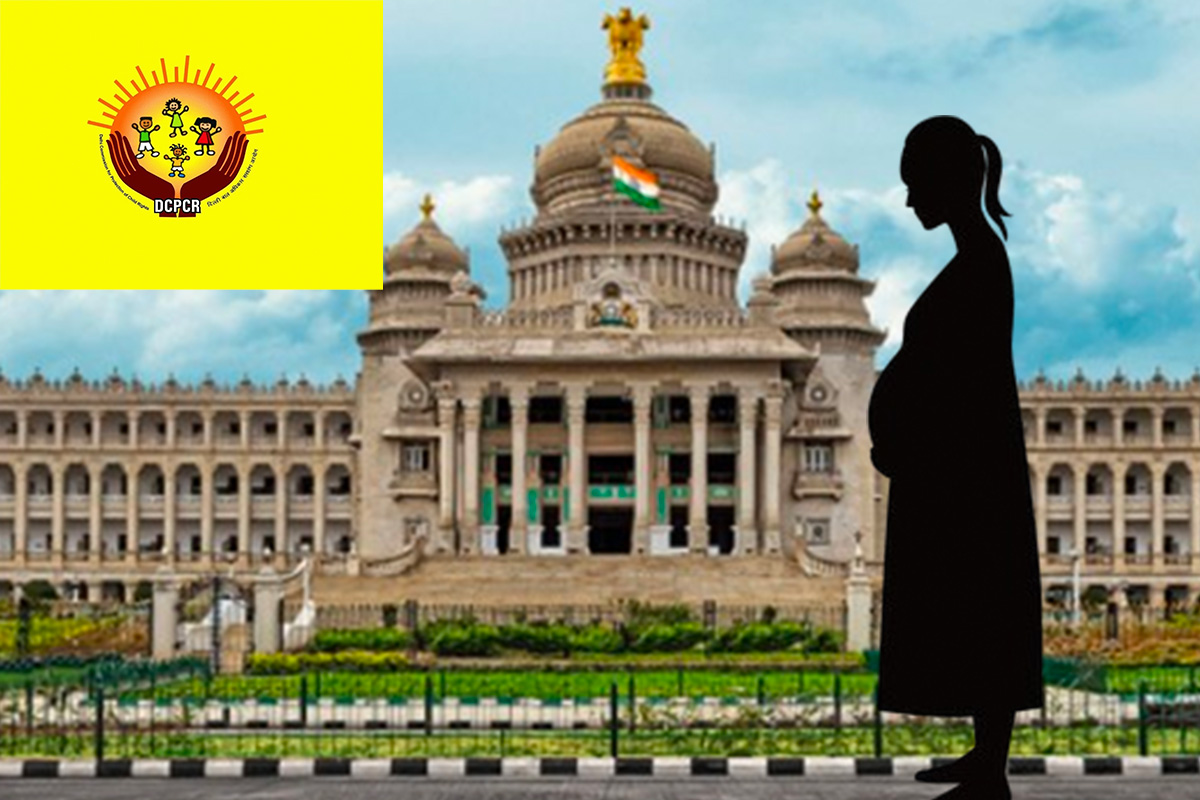
The state government and the health and family welfare department have a moral and legal obligation to ensure that every child in Karnataka enjoys all the rights enshrined in the Convention on the Rights of the Child, which India ratified in 1992.

The recent data from the National Health Mission’s reproductive and child health portal reveals a shocking reality: Karnataka has recorded over 10,000 cases of underage pregnant women in the last year. This is not only a violation of the rights of these girls, but also a serious threat to their health and well-being.
Underage pregnancies are often the result of child marriages, which are still prevalent in many parts of the state, especially in the northern region. According to data from child marriage prevention teams across the country, political pressure and social norms hinder the efforts to stop these illegal and harmful practices. As a result, more than a thousand weddings of underage girls took place in Belagavi district alone.
Child marriages and underage pregnancies are not only illegal but also immoral and inhumane. They deprive girls of their childhood, education, and opportunities. They also expose them to the risks of maternal mortality, complications, infections, and domestic violence. as well as perpetuate the cycle of poverty, gender inequality, and social exclusion.
The state government and the health and family welfare department have failed to protect the rights and interests of these girls. They have not taken adequate measures to prevent child marriages and underage pregnancies, nor have they held accountable those who are responsible for them. They have not filed cases with the police under section 19 of the Pocso Act 2021, which mandates the reporting and recording of child sexual abuse. They have not implemented the provisions of the Prohibition of Child Marriage Act 2006, which empowers the authorities to annul child marriages and punish the offenders.
Immediate and resolute action is imperative from the state government and the health and family welfare department to eradicate the pressing issue at hand. Strict enforcement of laws prohibiting child marriages and underage pregnancies is essential, with corresponding penalties for facilitators or participants in such practices. Adequate care and support must be extended to young pregnant women and their children. Concurrently, efforts should focus on educating and empowering parents and communities regarding the adverse outcomes of child marriages and underage pregnancies, emphasizing the advantages of delaying marriage and childbearing.
The state government and the health and family welfare department have a moral and legal obligation to ensure that every child in Karnataka enjoys all the rights enshrined in the Convention on the Rights of the Child, which India ratified in 1992. These rights include the right to life, survival, and development, the right to identity and nationality, the right to be free from discrimination, and the right to be protected from violence. The state government and the health and family welfare department must fulfill this obligation without delay or compromise.
The recent data from the National Health Mission’s reproductive and child health portal reveals a shocking reality: Karnataka has recorded over 10,000 cases of underage pregnant women in the last year. This is not only a violation of the rights of these girls, but also a serious threat to their health and well-being.
Underage pregnancies are often the result of child marriages, which are still prevalent in many parts of the state, especially in the northern region. According to data from child marriage prevention teams across the country, political pressure and social norms hinder the efforts to stop these illegal and harmful practices. As a result, more than a thousand weddings of underage girls took place in Belagavi district alone.
Child marriages and underage pregnancies are not only illegal but also immoral and inhumane. They deprive girls of their childhood, education, and opportunities. They also expose them to the risks of maternal mortality, complications, infections, and domestic violence. as well as perpetuate the cycle of poverty, gender inequality, and social exclusion.
The state government and the health and family welfare department have failed to protect the rights and interests of these girls. They have not taken adequate measures to prevent child marriages and underage pregnancies, nor have they held accountable those who are responsible for them. They have not filed cases with the police under section 19 of the Pocso Act 2021, which mandates the reporting and recording of child sexual abuse. They have not implemented the provisions of the Prohibition of Child Marriage Act 2006, which empowers the authorities to annul child marriages and punish the offenders.
Immediate and resolute action is imperative from the state government and the health and family welfare department to eradicate the pressing issue at hand. Strict enforcement of laws prohibiting child marriages and underage pregnancies is essential, with corresponding penalties for facilitators or participants in such practices. Adequate care and support must be extended to young pregnant women and their children. Concurrently, efforts should focus on educating and empowering parents and communities regarding the adverse outcomes of child marriages and underage pregnancies, emphasizing the advantages of delaying marriage and childbearing.
The state government and the health and family welfare department have a moral and legal obligation to ensure that every child in Karnataka enjoys all the rights enshrined in the Convention on the Rights of the Child, which India ratified in 1992. These rights include the right to life, survival, and development, the right to identity and nationality, the right to be free from discrimination, and the right to be protected from violence. The state government and the health and family welfare department must fulfill this obligation without delay or compromise.